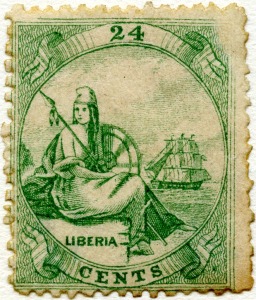Historians of the ancient world often have few sources to go on and much of our understanding of what happened before the last few centuries, for which written documents are common, is by inference. Thus we know of Phoenician settlements throughout the Mediterranean because of obelisks found on different sites inscribed with that language or by shards of pottery in Phoenician style. From coins we can infer that Hadrian was not always loyal to his wife, and all of what we know of Alexander is from histories written hundreds of years after his death when legend and lore surely colored fact.
A thought game many philatelists engaged in years ago was to view stamps and their designs as the sole surviving historical record. An example of the game went like this: Suppose we were historians from the fourth millennium. The only historical materials that we have from the Nineteenth and Twentieth Centuries are postage stamps and envelopes. What can we tell about the history and civilizations that existed then using just these documents? The case of Liberia and the United States is an easy one. Liberia is a nation on the west coast of Africa. Its first stamps were issued in 1860. The design shows a figure of an allegorical Seated Liberty of the kind found on US coins and on US Newspaper stamps. In the background of the stamp is a sailing ship. The history of Liberia is plainly written on these stamps. We can add the dates from other sources and then we know that Liberia was set up in the 1820s by Americans as an African country to repatriate freed American slaves. Liberia became an independent country in 1847. Its 1860 stamp issue still showed its ties to America- the Liberty figure representing what Liberia hoped to be to freed slaves living in a free country under American influence- and the ships representing the slave trade that both brought Africans, in bondage, to America and which would now take them back to freedom. If this seems like a lot to infer from a tiny stamp if we didn’t know any of the historical background, it is. But historians and scientists infer far more about the ancient world and about astro- and nuclear physics from even tinier shreds of evidence than postage stamps.




